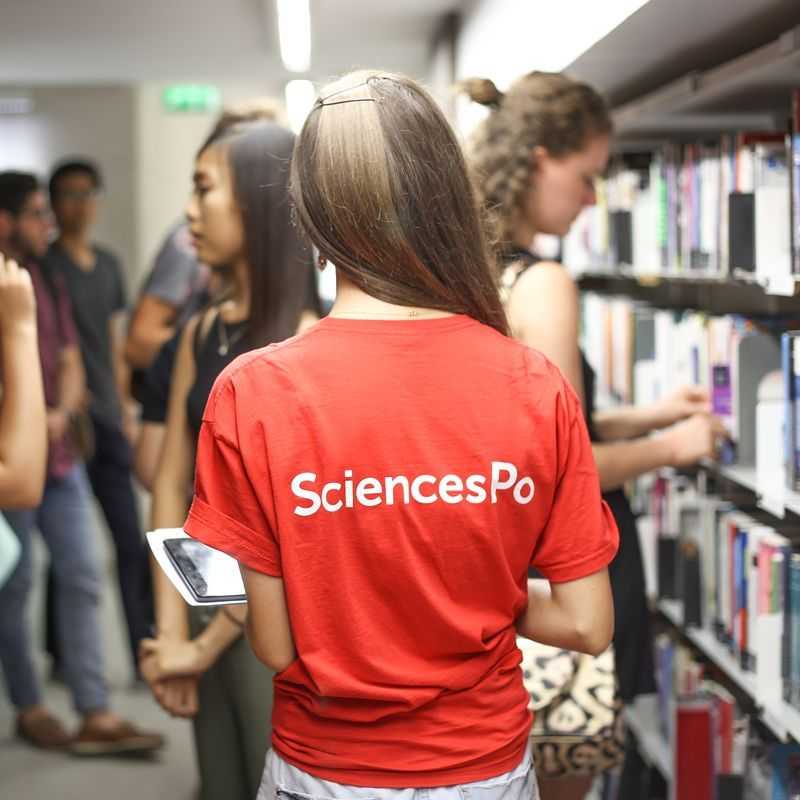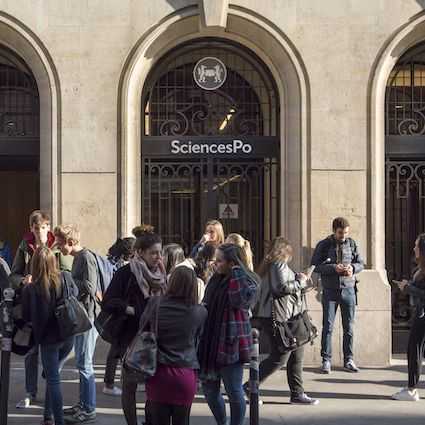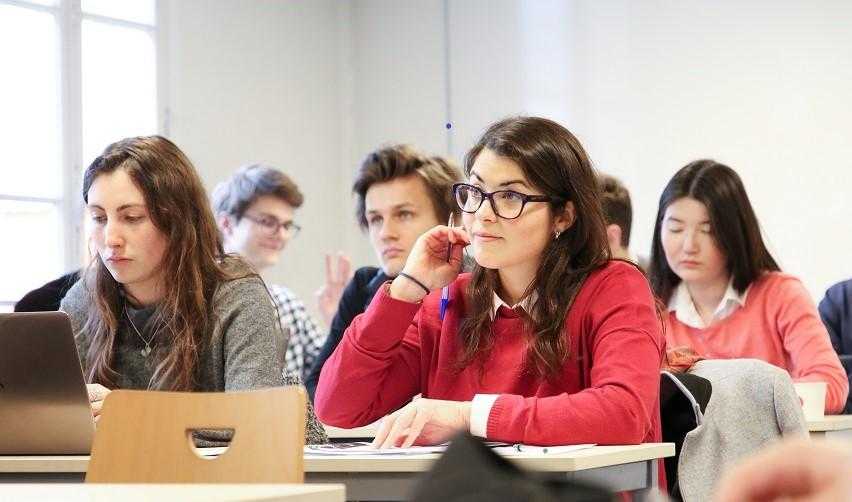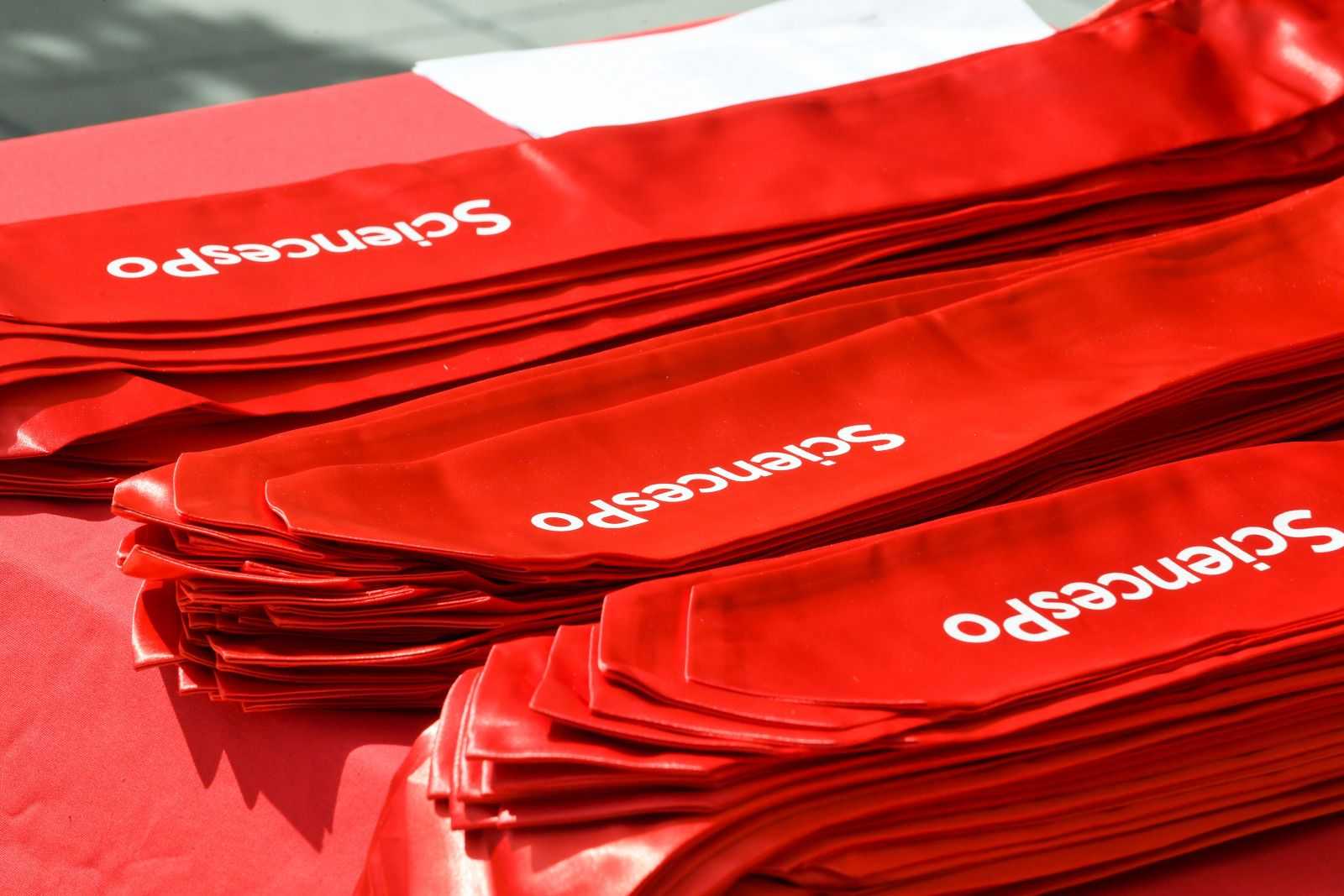
Home>Academics>Master Programs>International Economic Policy
Master in International Economic Policy
Two-year Master's
Programme in English
120 ECTS minimum
Information Sessions: Masters

Discover all the Master's programs and admissions procedures during our many webinars and YouTube Live dedicated to future applicants.
Please note: The Master in International Economic Policy is delivered in collaboration with the Department of Economics of Sciences Po.
General objectives
Trade wars, sanctions, sovereign debt, global inequalities, and the green transition: the Master in International Economic Policy at PSIA focuses on the most pressing issues that challenge economic policymakers at the international and regional – including European – levels.
This unique program equips students with the analytical and practical tools to understand and shape international economic policy. At the heart of the program is an extremely solid foundation in the theory of international economics, which is linked to more practical aspects in courses that bring in expert policymakers. Beyond these core topics, students can choose from a range of regional and thematic specializations. The curriculum also includes courses that teach students the technical skills that they require in their future careers.
Candidates for this program are expected to have successfully completed at least undergraduate level courses in microeconomics and in macroeconomics. Students should email the academic and scientific advisors in advance of their application in case they are unsure about meeting this requirement. Please note that although there is no mathematics or GRE/GMAT admissions prerequisite, students are expected to undertake formal mathematical analyses of economic models as part of their coursework, and should be prepared to do so.
Main orientations and specific features
The core curriculum is as focused on the economic theory and analysis of open economies (international trade, international macro/finance), and is supplemented by courses on international financial regulation, economic diplomacy, and sustainable economy.
Below is the degree structure for the Master in International Economic Policy:

Download the Program structure (PDF, 296 Kb).
Further details regarding PSIA’s general program structure. If you choose the Enhanced Master option in place of a second concentration, you will have to take one course from a specific list in Semesters 1 and 2, and choose one course in three out of four sub-blocks in semester 4.
The degree structure for students in the following programs can be found at: Dual Degree program, Joint Master program and One-Year Master program.
Courses
Career Opportunities
The master is designed to enable students to take up roles in economic policymaking, in particular those relating to international economic policy. Graduates of the program have been placed in international organizations (multilateral policy organizations, development banks, ECB) and national policy institutions (central banks, treasuries, government, development agencies).The program is also well-suited to engage in a career in the private sector where a thorough understanding of economic policy issues is crucial (economic journalism, consulting, finance, think tanks, start-ups, and the corporate sector).
Scientific Advisor
Thierry Mayer is Professor of Economics at Sciences Po since 2009 and was Head of the Department from 2019 to 2023. He is also a scientific advisor at the Centre d’études prospectives et d'informations internationales (CEPII), and a research fellow in the International Trade / Regional Economics programme at the Centre for Economic Policy Research (CEPR).
His research is primarily focused on trade theory and empirics, economic geography, as well as on foreign direct investment determinants. His recent publications include research on market power and trade, as well as papers estimating the impact of trade policies in industries characterized with multinational production. He also published theoretical and empirical analysis of migration choices in violent contexts, as well as spatial diffusion of cultural traits. His most frequently cited research includes empirical studies on the level and causes of market fragmentation in the European Union, and works on how gravitational forces shape economic interactions.
His research has received a number of distinctions at both the national and international levels. In France, he was the Laureate of the Bronze Medal of the Centre National de la Recherche Scientifique (CNRS), as well as the Co-laureate for Best French Young Economist Prize (Le Monde/Le Cercle des Economistes) in 2006. In 2008 he was appointed Junior Member of the Institut universitaire de France. Internationally, Thierry was awarded a prestigious European Research Council (ERC) Starting Grant in 2012 for his 6-year project Heterogeneity that Matters for Trade and Welfare (HETMAT). He was the chair for the consolidator grant panel of the ERC in 2016, 2018 and 2020. In 2023, he was elected to become a fellow of the Econometric Society. In 2024, he will become one of the co-editors of the Journal of the European Economic Association.
Prior to joining Sciences Po, Thierry MAYER was Professor at the University of Paris I-Paris School of Economics (PSE).
He holds a PhD in economics from the University of Paris I (2000, awarded the AFSE Best Thesis Prize).
Testimonials from graduates
- Berk, Strategy Analyst, Technip Energies
- Alexander, PhD Candidate, Oxford University
- Alzbeta, Research Associate transitioning to Junior Economist, OECD
- Matteo, Administrator (JPT) at the Council of the European Union in the Budget and Cohesion Unit (DG ECOFIN), Belgium
- Manuela, Climate Economist, Oxford Economics, London
- Alberto, co-founder of Lienzo, Paris
- Vanika, Junior Economist, The European Center for International Politacl Economy, Brussels
- Aliénor, PhD student at he Climate Economics Chair at EconomiX (Université de Paris-Nanterre),Paris
- Erik, Presidential Management Fellow and Financial Analyst for the Consumer Financial Protection Bureau (CFPB), Washington DC
- Michele, Analyst, Dalberg Global Development Advisors
- Sharan, PhD Candidate, Cornell University
- Clara, Senior Analyst, KOIS
- Maria Vittoria, Analyst, McKinsey&Company
- Valentina, NextGen Graduate, Strategy and Consulting, 3Shape
- Julia, Junior Policy Analyst, OECD
- Anqi, Sustainable Investment Analyst, Allianz France
- Ankit, Head of Growth, Alariss Global
- George, Knowledge Manager, GSMA
Discover PSIA 2025 Summa Cum Laude:
CONTACTS
Academic Advisor: Cecilia Baeza
Academic Assistant: Tiziana Zanirato
Secretariat open:
- Monday, Tuesday and Thursday 9:30-12:45 and 2:15-4:45;
- Wednesday and Friday 9:30-12:45.
Key information about the application process (requirements, documents, deadlines and calendar, etc) can only be found on Sciences Po’s Admissions website.




